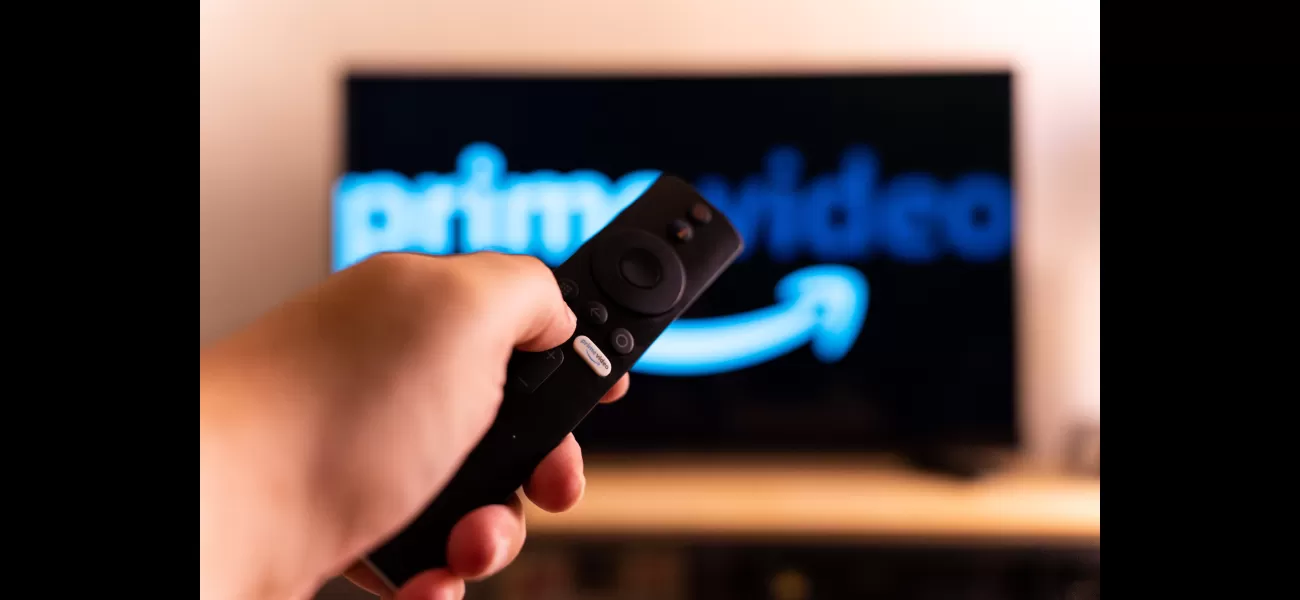Amazon Prime Video is making a significant change by implementing a new monthly fee for its customers.
Something is occurring.
February 2nd 2024.

Attention Amazon Prime Video subscribers! Brace yourselves for a major change coming your way next week. As you may remember, a few months ago Amazon announced that advertisements would soon be making an appearance on their beloved streaming platform. And now, the day is almost here.
Our US counterparts have already been experiencing the new addition since January 29, but lucky for us here in the UK, we were given an extra week of uninterrupted streaming. But, all good things must come to an end, and that blissful week is about to be over. Starting Monday, February 5, adverts will start popping up on Amazon Prime Video - unless, of course, you're willing to pay a little extra.
For those of you who may not know, Prime Video is included in Amazon's Prime membership, which currently costs £8.99 per month or £95 annually. There is also a student membership available for £4.49 per month or £47.49 per year. However, if you want to avoid those pesky ad interruptions, you'll now have to pay an additional £2.99 per month, adding up to £35.88 per year.
But don't get too excited just yet, because even with the extra payment, there's no guarantee of a completely ad-free experience. Some content, such as live sports and Amazon Freevee, will still show advertisements. On the bright side, any content that is rented or purchased will remain ad-free, and viewers in Ireland, the Channel Islands, and the Isle of Man will also be spared from the ads - at least for now.
This change was first announced by the tech giant last month. In a statement, they explained that starting February 5, Prime Video movies and TV shows will include limited advertisements. According to Amazon, this move will allow them to continue investing in compelling content and increase that investment over a long period of time.
This update to Amazon Prime Video follows in the footsteps of other streaming platforms, such as Netflix and Disney+, who have recently introduced cheaper tiers with advertisements. This now leaves Apple TV+ as the last major streaming platform that remains ad-free. However, Amazon has assured customers that they will have "meaningfully fewer ads" compared to linear TV and other streaming providers.
Some subscribers in the US have already shared their feelings about the change on social media. Business journalist David Lazarus expressed his dislike for the new addition, stating that he will be watching less Prime Video rather than paying an extra $36 a year to get rid of the ads. Meanwhile, others have questioned the purpose of Amazon Freevee now that everything on Prime Video will have ads.
But not everyone is happy about this change. Gaming boss Cade Peterson simply summed it up as "Well this sucks." On the other hand, some have already taken action and canceled their subscriptions after seeing their first ad. User Mike Jameson shared his frustration on social media, pointing out that Amazon keeps stripping away features that he expects from the Prime membership, such as the new high minimum delivery for Amazon Fresh and the increasingly unreliable two-day shipping.
It's worth noting that at the moment, there is no option for a Prime Video-only subscription. Amazon will be introducing ads to customers in the UK, US, Germany, and Canada first, with France, Spain, Italy, Mexico, and Australia following suit in 2024.
Despite the backlash from some customers, Amazon Studios, which produces original content for the platform, has seen great success in recent years with hits such as The Marvelous Mrs. Maisel and The Lord of the Rings: The Rings of Power.
On a side note, Sky has made changes to the way you watch Netflix on their platform, and unfortunately, it's not good news. And in other streaming news, a Netflix star is currently being sued for fraud in a $5,000,000 mansion sale. And let's not forget the confusion surrounding Tom Cruise's casting in an upcoming Amazon Prime Video project. Stay tuned for more updates!
Our US counterparts have already been experiencing the new addition since January 29, but lucky for us here in the UK, we were given an extra week of uninterrupted streaming. But, all good things must come to an end, and that blissful week is about to be over. Starting Monday, February 5, adverts will start popping up on Amazon Prime Video - unless, of course, you're willing to pay a little extra.
For those of you who may not know, Prime Video is included in Amazon's Prime membership, which currently costs £8.99 per month or £95 annually. There is also a student membership available for £4.49 per month or £47.49 per year. However, if you want to avoid those pesky ad interruptions, you'll now have to pay an additional £2.99 per month, adding up to £35.88 per year.
But don't get too excited just yet, because even with the extra payment, there's no guarantee of a completely ad-free experience. Some content, such as live sports and Amazon Freevee, will still show advertisements. On the bright side, any content that is rented or purchased will remain ad-free, and viewers in Ireland, the Channel Islands, and the Isle of Man will also be spared from the ads - at least for now.
This change was first announced by the tech giant last month. In a statement, they explained that starting February 5, Prime Video movies and TV shows will include limited advertisements. According to Amazon, this move will allow them to continue investing in compelling content and increase that investment over a long period of time.
This update to Amazon Prime Video follows in the footsteps of other streaming platforms, such as Netflix and Disney+, who have recently introduced cheaper tiers with advertisements. This now leaves Apple TV+ as the last major streaming platform that remains ad-free. However, Amazon has assured customers that they will have "meaningfully fewer ads" compared to linear TV and other streaming providers.
Some subscribers in the US have already shared their feelings about the change on social media. Business journalist David Lazarus expressed his dislike for the new addition, stating that he will be watching less Prime Video rather than paying an extra $36 a year to get rid of the ads. Meanwhile, others have questioned the purpose of Amazon Freevee now that everything on Prime Video will have ads.
But not everyone is happy about this change. Gaming boss Cade Peterson simply summed it up as "Well this sucks." On the other hand, some have already taken action and canceled their subscriptions after seeing their first ad. User Mike Jameson shared his frustration on social media, pointing out that Amazon keeps stripping away features that he expects from the Prime membership, such as the new high minimum delivery for Amazon Fresh and the increasingly unreliable two-day shipping.
It's worth noting that at the moment, there is no option for a Prime Video-only subscription. Amazon will be introducing ads to customers in the UK, US, Germany, and Canada first, with France, Spain, Italy, Mexico, and Australia following suit in 2024.
Despite the backlash from some customers, Amazon Studios, which produces original content for the platform, has seen great success in recent years with hits such as The Marvelous Mrs. Maisel and The Lord of the Rings: The Rings of Power.
On a side note, Sky has made changes to the way you watch Netflix on their platform, and unfortunately, it's not good news. And in other streaming news, a Netflix star is currently being sued for fraud in a $5,000,000 mansion sale. And let's not forget the confusion surrounding Tom Cruise's casting in an upcoming Amazon Prime Video project. Stay tuned for more updates!
[This article has been trending online recently and has been generated with AI. Your feed is customized.]
[Generative AI is experimental.]
0
0
Submit Comment





